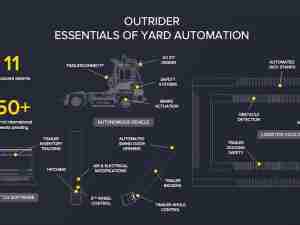South Korean companies are rushing to set up contingency plans as the nation’s largest union for truck drivers prepares for a possible strike that would hamper the flow of key components, raw materials and exports.
The Cargo Truckers’ Solidarity division of the Korean Public Service and Transport Workers’ Union said it will block all ports in the country as part of the strike beginning Thursday. A work stoppage would be the second this year, after protests in June over a wage scheme curbed production of everything from autos to fuel and upended global supply chains.
Hyundai Motor Co., the country’s largest automaker, is trying to secure as many parts as possible before the strike affects its plants near the port of Ulsan, according to a person familiar with the matter. The company experienced partial production disruptions at the Ulsan plants during the June action.
A strike would also come at a difficult time for Posco Holdings Inc., the country’s largest steelmaker. The company is still carrying out repairs after devastating floods in September that suspended operations at its plant in Pohang. Posco is hoping the union will allow it to ship out trash from the recovery works, a spokesman said in a text message.
Daewoo Shipbuilding & Marine Engineering Co., the world’s second-largest shipbuilder, is seeking to obtain necessary materials as quickly as possible, and is looking for land routes for deliveries and shipments in case ports are blocked.
One Korean petrochemicals maker, meanwhile, is trying to deliver products to local customers as much as possible before the strike, according to a spokesman for the company, which asked not to be identified due to the sensitivity of the issue. Such products are generally delivered in huge volumes, so customers can’t stockpile much, he added.
The strike in June lasted more than a week, causing production disruptions costing about 1.6 trillion won ($1.2 billion), according to government estimates. The truckers decided to go ahead with another work stoppage after months of negotiations with the government failed to extend or expand a system calculating minimum wages based on operating costs, a union spokeswoman said.
South Korea’s government is urging labor unions to refrain from strikes and rallies and to resolve issues through dialogue.








